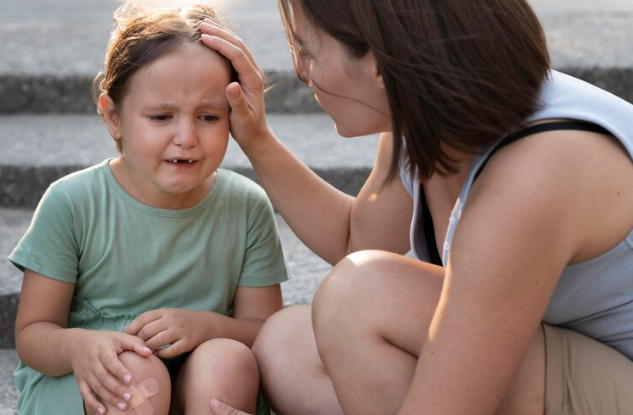- Details
- Category: 3-6 yo

When your child repeats a series of "why" questions over and over again, he or she has entered the well-known "why stage". This stage usually begins around the age of 3 (but also depends on language development) or when the child develops pleasure in asking for information on everything and his curiosity is insatiable, and this can continue up to 7/8 years.
The repeated series of questions serves him both to learn but also to test the willingness of the parents. Therefore, dear parents, arm
- Details
- Category: 3-6 yo

Around the age of 3-4 years old, your child may begin to ask himself the first questions on the subject of death.
Often these questions are faced by children in evasive and sometimes refusal terms because at this age death is experienced as an absence that causes a feeling of emptiness and pain, and not as a definitive disappearance. Abandonment and related fear are sensations that the child at this age has already experienced. In fact, when he was younger and saw his mother leaving, the fear
- Details
- Category: 3-6 yo
 The UN Convention on the Rights of the Child (CRC) was approved by the General Assembly of the United Nations on 20 November 1989.
The UN Convention on the Rights of the Child (CRC) was approved by the General Assembly of the United Nations on 20 November 1989.
The Convention is composed of 54 articles and the text is divided into three parts: the first contains the enunciation of rights (Arts. 1-41), the second identifies the bodies in charge and the modalities for the improvement and monitoring of the Convention (Arts. 42-45), while the third describes the ratification procedure (Arts. 46-54).
The 10 fundamental rights
- Details
- Category: 3-6 yo
Since the first months of life, your child has experienced separation from his mother, understanding that there is a difference between his body and hers as two separate entities.
At about 3 years of age, the child has acquired the knowledge that the mother is "present" even if physically she is not there and from this internal representation he draws comfort and support which are useful to him in moments of detachment from his parents.
To support the delicate moment of detachment, what can


